35) Section 2 – Subtraction
Bonds of 6, 7, 8, 9: Building a Wall – Adding On
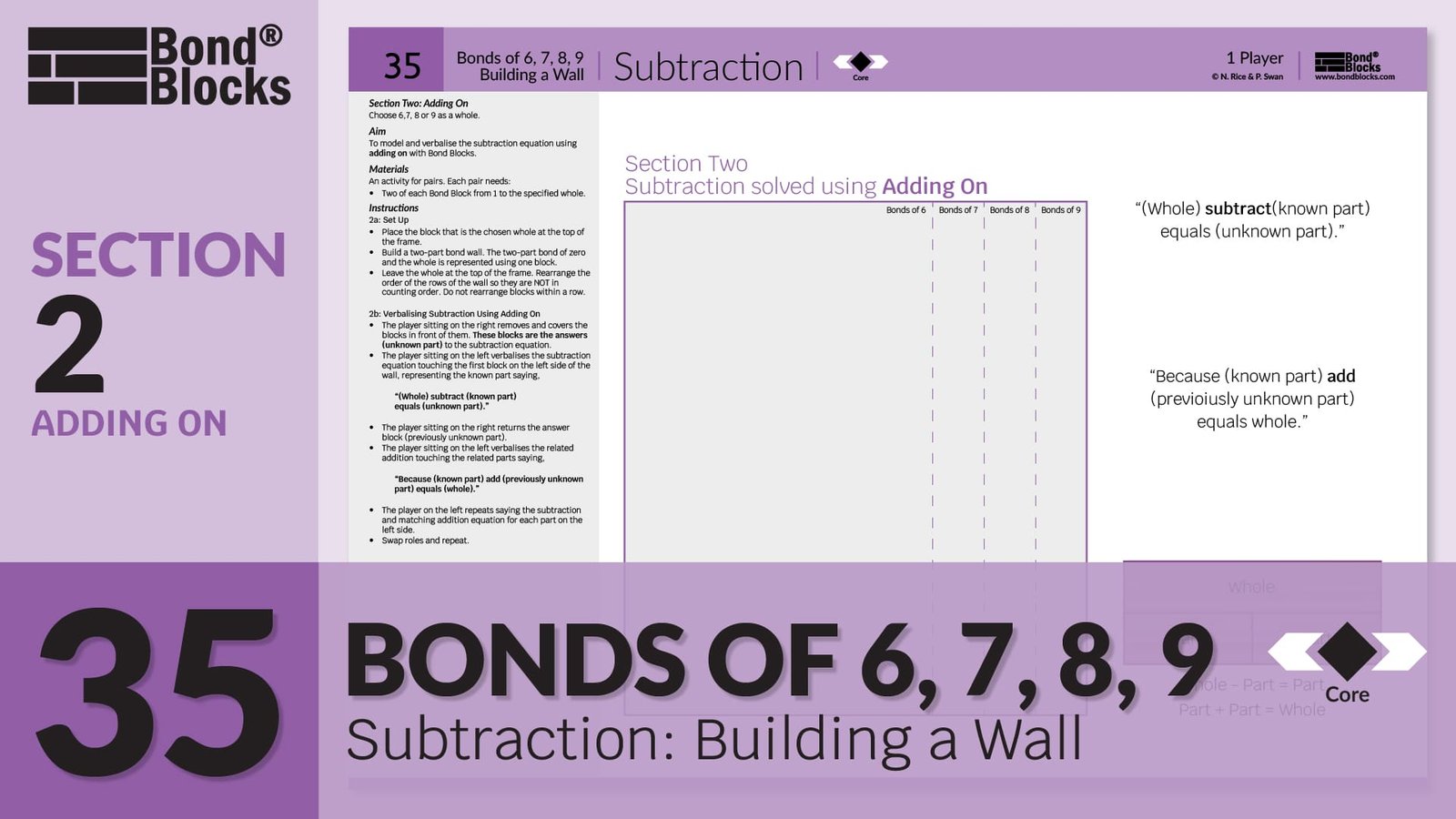
Mathematics
Choose 6, 7, 8 or 9 as the whole. The following activity notes use 7 as the whole.
Develop the concept of subtraction solved using adding on.
- Verbalise the subtraction equation for a whole, subtract a known part, equals an unknown part.
Whole – Known Part = Unknown Part

- Verbalise that the known part, add the unknown part, equals the whole.
Known Part + Unknown Part = Whole

Language
- part-part-whole
- known part
- unknown part
- subtraction solved using “adding on”
- “(Whole) subtract (known part) equals (unknown part).”
- “Because (known part) add (previously unknown part) equals (whole).”
Click this link to read Teacher Notes for more information about about “Solving Subtraction Using Taking Away or Adding On”.

Differentiation
Core activity
Note on zero
When solving subtraction using addition, players can choose to subtract the whole or zero. For example,
subtracting seven.

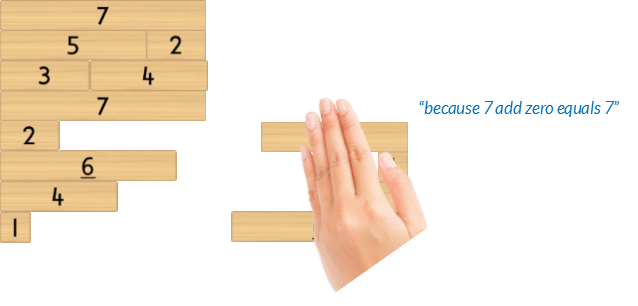
subtracting zero.
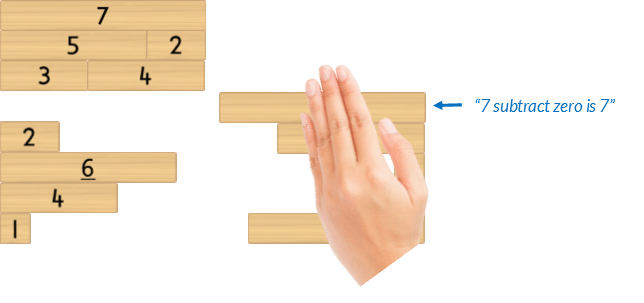
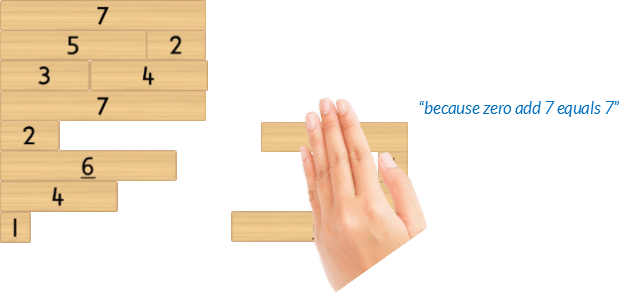
A little easier
Working Memory Support: desk visual
Click to download the relevant Part-Part-Whole Diagram desk visual. Place these next to students, for them to refer to, whilst completing the activity.
- Begin playing with the part-part-whole diagrams face up.
- As the student’s confidence with the bond increases turn the cards face down. The player can turn cards over to check the bond as needed.
- Cut off and discard bonds the student is fluent with.
These diagrams can be useful supports for students with memory or processing difficulties.




Click this link to read Teacher Notes for more ideas about “Using Part-Part-Whole Desk Visuals” to support students.
A little harder
Increase The Whole
Students can complete Activity 35 for wholes slightly greater than 10 such as 11 an 13. Build the whole using a 10 Block and one other block.
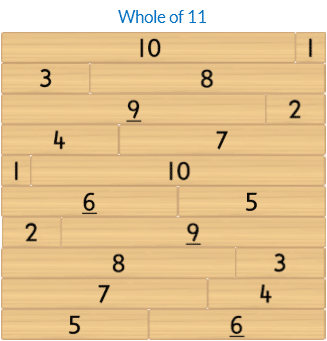
Progression
In the next activity students develop fluency with Bonds of 6, 7, 8 and 9. Go to
Activity 36
Bonds of 6, 7, 8, 9: Fluency, Shake and Spill
